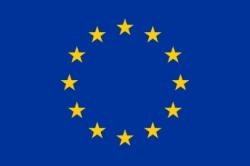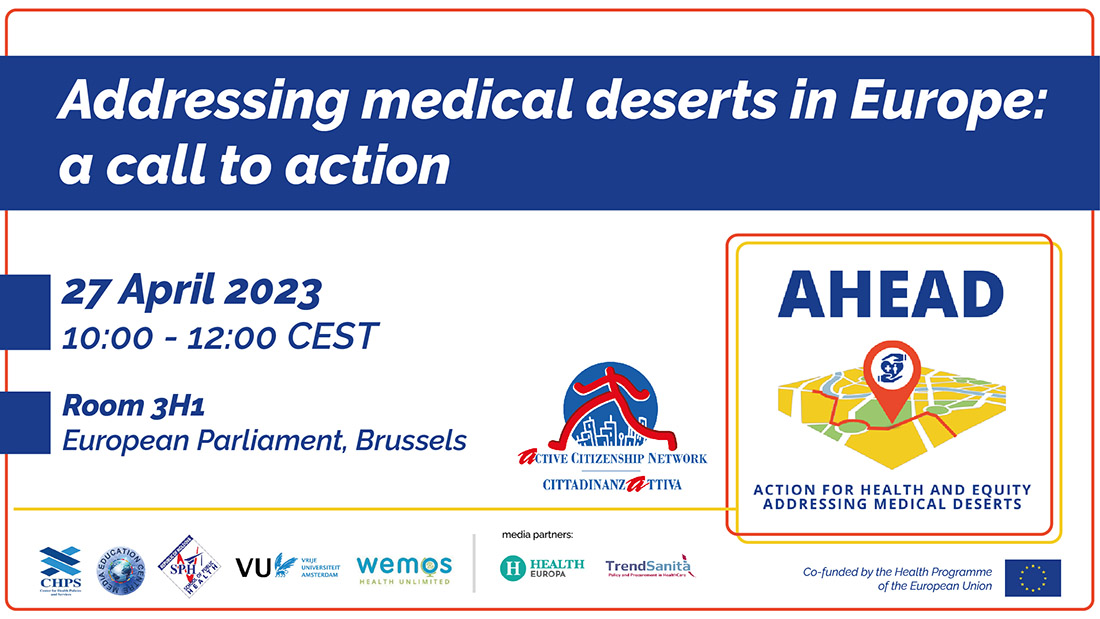The Conference will be held on 27 April 2023 from 10:00 to 12:00 in Room ASP 3H1 at the European Parliament in Brussels, hosted by Italian MEP Beatrice Covassi.
To attend the event in person, please register here by 16 April. Registration is free but mandatory. Please note that registrations are accepted on a first-come-first-served basis. If the maximum capacity is reached, registrations might be closed at any time.
This multi-stakeholder event represents a milestone in the policy dialogue process that first involved local, regional and national, and now European institutions. It is part of the final stage of the project and is organized following the realization of several local roundtables with the involvement of the main stakeholders, together with representatives of the local and regional institutions of the 5 countries of the AHEAD consortium (Italy, Moldova, the Netherlands, Romania and Serbia).
The ultimate aim is to present to the European Institutions our main recommendations, tools and concrete proposals, based on our analysis and research in the project countries, to address the phenomenon of medical desertification. These were co-developed with the national institutions, to affirm and emphasise the commitment of the European institutions on an issue that is present in many countries.
The context
The COVID-19 pandemic highlighted the inequalities and differences among the EU Member States’ health systems even further. Particularly, the 2021 State of Health in EU Companion report brought attention to the need to rethink health workforce strategies across the Union.
Starting with the basic indicator of health worker density in various Member States, the available data indicates a 5.6 fold difference between the regions highest and lowest density of physicians. This highlights the diversity of physician availability, not just among the countries, but also within the different regions in countries, from rural to urban settings. The lower the density of health workers in a region, the most likely it is to be considered a medical desert, and thus be an area with potentially limited access to medical services.
Moreover, the State of Health in EU Companion report has shown that almost all European Member states face a challenge in recruitment of health personnel, particularly physicians in rural areas. Country-specific strategies and policies have been implemented to various degrees, and with success.
In this context, the AHEAD consortium partners developed a working definition for a ‘medical desert’ to operationalise this concept and ease the process of finding areas that could be at risk of compromised access to health care to their populations.
The elaborate definition includes three dimensions on access to healthcare, which are underpinned by the availability of health workers, medical facilities and necessary technologies to facilitate access to primary care services. One factor that is certain, is the availability of sufficient of health workers, which is apparent in all dimensions.
Although health workforce challenges are often addressed at country level, their solutions do not only have a national component, but also an international, European component. The freedom of movement of health workers in the European Union has resulted in dynamic and complex health worker mobility flows, exacerbating health worker shortages in countries and regions where working conditions are less favourable.
The resulting inequalities go against the European ambition to shoulder the responsibility for shared prosperity for all in the Union, to aim for solidarity and, in the 3rd Health Programme, to reduce health inequalities. Member States as well as EU level institutions therefore bear the responsibility to – together – look for ways to achieve this. The complexity of different EU policies and the complex interplay between national and EU level policies, require an explicit EU approach to possible solutions.
To know more:
For more information:

The project AHEAD has received funding from the European Union’s EU CHAFEA – 3rd Health Programme under grant agreement No 101018371. Call identifier: HP-PJ-2020-2. Topic: PJ-01-2020-2. Support to reforms in health workforce field - Initiatives on medical deserts (Heading 1.2.1.1 of the AWP 2020)




